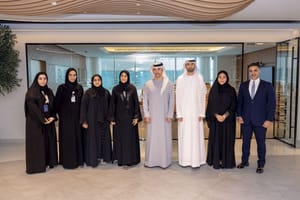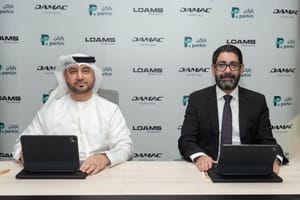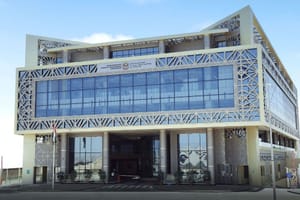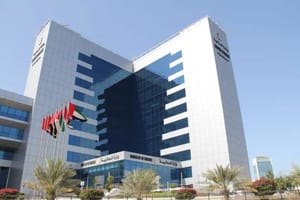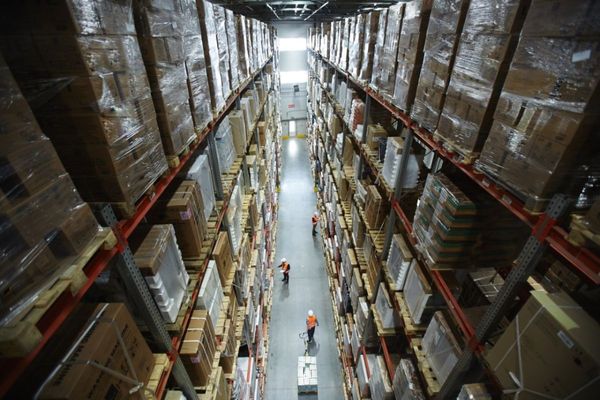Omar bin Sultan Al Olama, Minister of State for Artificial Intelligence, Digital Economy, and Remote Work Applications, affirmed the UAE government’s vision and futuristic approach, under the leadership of His Highness Sheikh Mohammed bin Rashid Al Maktoum, Vice President, Prime Minister, and Ruler of Dubai, in adopting advanced technology, and enhancing the utilization of AI in designing the best solutions to critical challenges and exploring new opportunities that support the digital economy growth and contribute to building a better future.
This came during the meeting of the UAE Council for Artificial Intelligence and Blockchain.
Al Olama emphasized that the UAE Council for Artificial Intelligence and Blockchain aims to promote collaboration, paving the way for new opportunities and adopting new solutions based on technology and digitization with the strategic aim to launch effective proactive initiatives that contribute to achieving digital goals across the UAE and enhance its competitiveness and global leadership.
The council discussed the main achievements of the 12 subcommittees under the umbrella of the council and developments in the implementation of 60 initiatives within the second phase of the National Artificial Intelligence Strategy.
The members focused on their plans to adopt artificial intelligence in vital sectors, encouraging competitiveness between government entities. Adopting artificial intelligence as a working model and an essential tool in digital transactions in healthcare, energy, natural resources, blockchain, industry, transportation and logistics, and tourism was the council's top priority.
The members further touched upon the second phase goals, which include enhancing the UAE’s competitiveness in priority sectors, developing systems aiming to adopt artificial intelligence in government services, and establishing an effective legislative and regulatory environment.
The Artificial Intelligence Ethics Policy Committee announced the completion of the Artificial Intelligence Ethics guideline. This achievement through the council aims to develop principles of artificial intelligence ethics, support the adoption of AI in the UAE government in major industries, and ensure following-up, transparency, and clear explanation in artificial intelligence systems.
The Artificial Intelligence Procurement Regulatory Committee in government sectors shared the workflow on the guidelines that aim to provide government sectors with the most important criteria and bases for evaluating artificial intelligence systems and solutions. This creates a competitive environment between suppliers and developers, ensuring quality and reducing costs.
The data-sharing committee for training artificial intelligence techniques discussed the workflow of collecting data from the government and private sectors to empower artificial intelligence systems and develop the data platform to train the artificial intelligence algorithms. That will create accurate scenarios and deep future insights to enhance the utilization of technologies.
The Artificial Intelligence-Enhanced Education System Committee showcased the initiative's progress to discover distinguished students in AI to build their capabilities.
The Committee also works on educational platforms that support self-learning enhanced by artificial intelligence, forms educational Curriculums that build knowledge and develops initiatives related to artificial intelligence.
The Industry Sector Committee also discussed the initiative to train more than 100 leaders in the industry sector within training programmes in partnership with Mohamed bin Zayed University of Artificial Intelligence and EDGE Learning and Innovation Factory, in an exceptional step to enhance leaders and decision-makers in the fields of artificial intelligence.
News Source: Emirates News Agency



